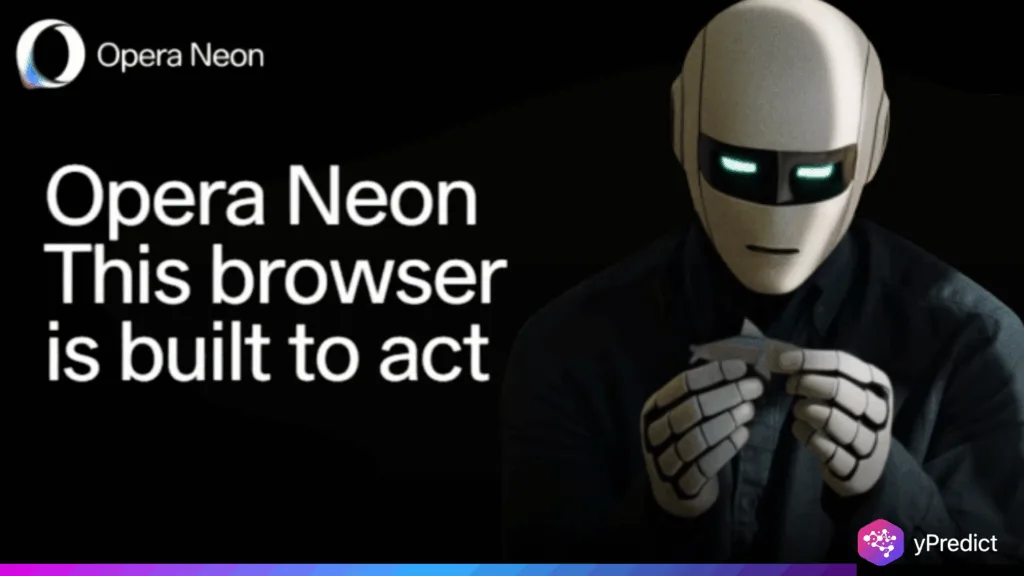
Opera has just released a new browser called Opera Neon, and it’s already causing a stir. The browser is not just for browsing. It’s an “agentic” AI assistant that does stuff like manage tabs, fill forms, reply to your emails, and even build web apps. But here’s the kicker–it’s not free. The Founder Plan costs $59.90 for nine months, then $19.90 a month thereafter. And a lot of users have the same question. Why pay for something browsers already do for free?. Opera Neon touts automation and privacy, but it’s competing with free options like Brave, Edge, and Perplexity’s Comet AI Browser.
AI That Works While You Browse
So what sets Opera Neon apart? It’s designed for AI tasks that feel like personal assistants. It operates tasks, chat, do, make, and cards. Make can even generate code for simple web apps directly in the browser. Think of completing lengthy forms or creating a mini-dashboard — no copy-paste or additional software required.
Opera Neon also scans the architecture of pages, ‘observing’ how they’re composed to mechanize boring, repetitive tasks. It has privacy tools as well, a native VPN and ad blocker, so users don’t need additional extensions. The browser’s AI learns from your surfing habits, proposes moves before you request. For instance, it could propose summarizing a webpage or composing a response while you’re browsing your inbox.
The big challenge? Persuading folks to pony up for something free for generations. Competitors, including Edge and Brav, already have free AI features built in. And even Opera’s own legacy browser had free versions of the like. Though Opera Neon seems ambitious, it needs to justify its value in everyday use. Absent obvious quantifiable benefits, lots of folks view it as a costly experiment.
Pushback From Users and Industry
So far, the initial feedback has been harsh. Well, with most users, they question the subscription. Twenty dollars for a browser? one person wrote on Reddit. Another dubbed it “AI that addresses problems no one has.” That doubt goes all the way down, particularly since breakaway browsers already have that sort of functionality for free.
Still, Opera Neon isn’t pursuing casual users. It’s going after productivity-heavy workflows. Multitab developers, marketers, and writers could benefit from automation. But for casual users, it’s a stretch. There’s also a privacy concern. Paying doesn’t necessarily equate to safer data practices. Others still fret about what becomes of their browsing data behind the scenes.
Market analysts say Opera Neon will require more than shiny AI demos. It has to demonstrate time savings or something special that others can’t duplicate. If, for instance, “Make” could immediately convert a product concept into a prototype that’s worth $20. But if it merely fills forms more quickly, users won’t clamor. The browser stands at an intersection of real innovation and gimmick. Its next few updates will determine which side it comes down on.
Conclusion
Opera Neon is audacious, but audacious doesn’t always equate to useful. The browser attempts to reinvent web browsing with AI, but it runs up against antiquated assumptions: browsing must be gratis. Still, the concept matters. If it can genuinely automate substantive activities, Opera Neon could secure a niche working against experts. If not, it’s in danger of being known as a costly novelty. The lesson? Even the cleverest AI requires a non-novelty reason to exist. Ultimately, utility, not buzz, will determine if this novel AI browser thrives or withers.






